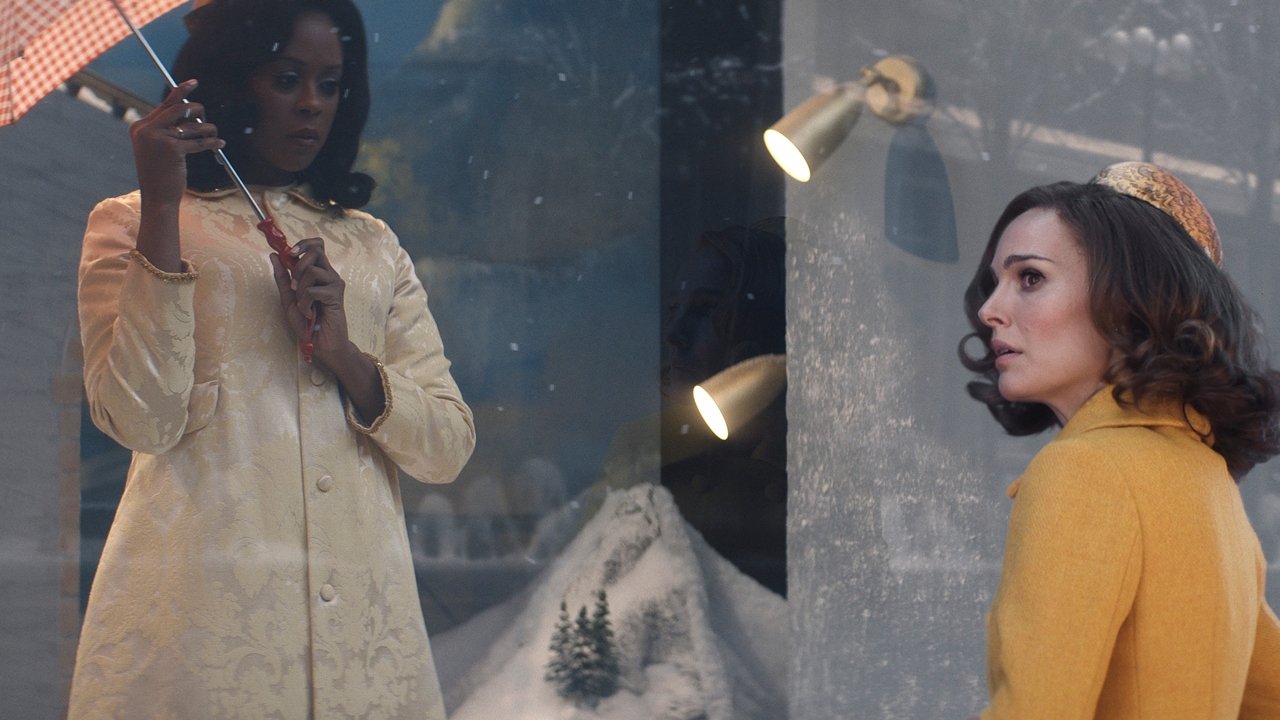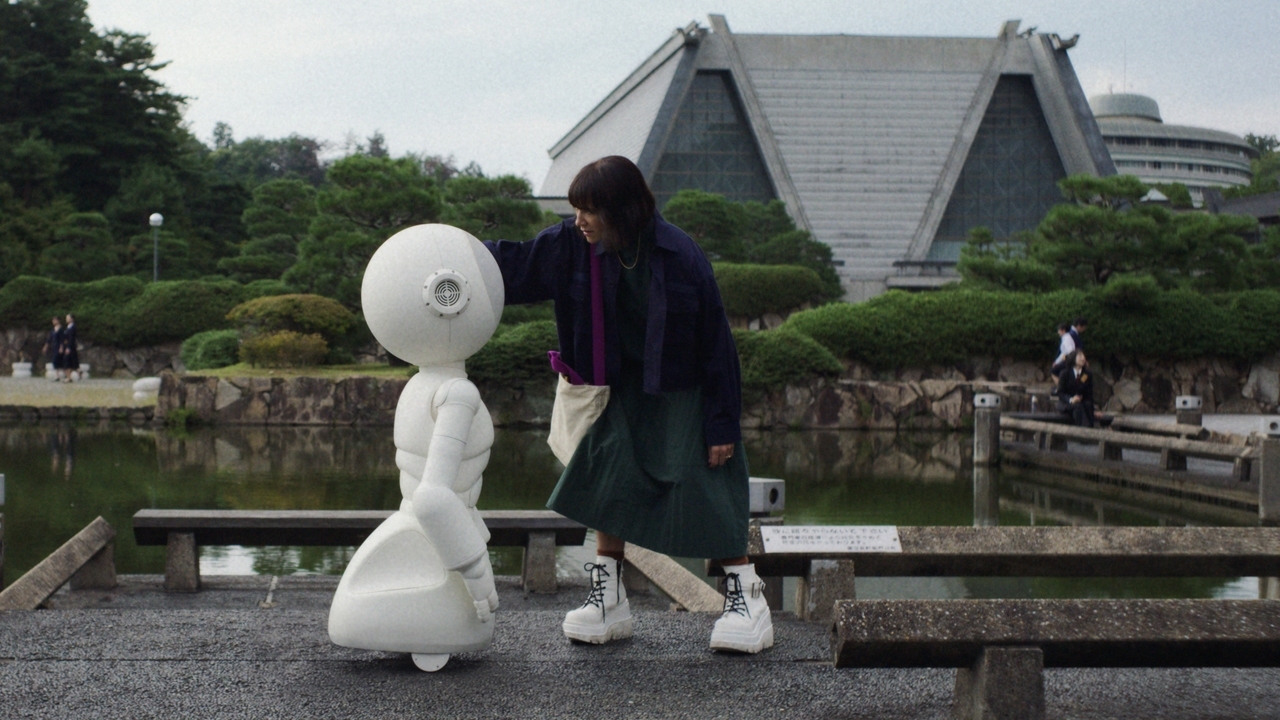5 Best Releases Like Vanished 46 on Apple Tv Plus

Lady in the Lake
For a show set in the mid-1960s, Lady in the Lake explores a basketful of issues relevant to today. From nearly 60 years in our past, it echoes modern “concerns” of all stripes. For example, characters range from dubious to outright hostile to the idea of Maddie (Natalie Portman) working as a journalist or Ferdie Platt (Y’lan Noel) becoming the first black detective in Baltimore. It doesn’t take much to see how that connects with today’s handwringing over DEI—bigotry dressed up to look like worries about the “most deserving person” getting the job. That the most deserving always seems to be a white man, in such concerned citizens’ opinions, is just a coincidence, no doubt. Also spotlighted in Lady in the Lake are questions about women’s autonomy over their own bodies, grooming, legalized gambling, antisemitism, and politicians throwing over the people that got them elected for “respectability”. Homophobia, stranger danger, and the ramifications of untreated childhood trauma also receive small but prominent moments of attention. Moses Ingram's too good to get lost in this series' chaos so often. (AppleTV+) If that sounds like a lot for a television series to tackle in a single seven-episode season, well, it is. As a result, the show frequently —particularly the first two to three episodes—lapses into a sort of controlled but still frantic chaos. In its efforts, led by creator Alma Har’el, to wrap its arms around everything it wants to be about, the viewer can feel battered by incidents. The series’ occasional dalliances with hallucination and visual metaphor don’t help in this regard. They’re fascinating for certain. The sixth installment’s near episode-length exploration of Maddie’s psyche stands out as a season-high. However, they also sometimes make it overly difficult for the audience to find solid footing in the narrative. Lady in the Lake’s ambition is worthy of praise, but that doesn’t necessarily translate into good television. Continue Reading →

Sunny
About fifteen years ago, an era of “complicated” protagonists ruled the television landscape. These anti-heroes—Walter White, Don Draper—were the sort of people one wouldn’t associate in their day-to-day life. Safely sealed in a flat screen, though, and viewers couldn’t get enough of them. It was a glorious time to be unlikable on TV. Still, as Erik Kain pointed out, it was an honor almost entirely reserved for men. Sunny is a late-arriving corrective, centering a fully complex and often unlikable Rashida Jones. As Suzi, Jones ditches nearly everything that makes her an on-screen appealing presence in the likes of The Office and Parks and Recreation. She also flattens the traits that make her stand out as a character worthy of empathy in projects like Silo and On the Rocks. In place of those, she offers a dead-eyed stare that only sparks to life when castigating her mother-in-law Noriko (Judy Ongg), random bureaucrats, and, of course, the titular android Sunny (voiced by Joanna Sotomura). Rashida Jones does not, and this can't be stressed enough, have time for this nonsense. (AppleTV+) It isn’t like she doesn’t have cause for anger and the thousand-mile gaze. As the opening minutes reveal, Suzi has justy lost her husband Masa (Hidetoshi Nishijima) and son in a plane crash. However, as the series unfolds, it becomes clear Suzi can’t blame her unpleasantness entirely on grief. As revealed in flashbacks, she’s been hard-drinking and foul-mouthed for some time. Additionally, although partially owed to her dyslexia, she wields her failure to learn nearly any Japanese like a cudgel. It is yet another tool for holding the world at bay. That world includes, often, her spouse. Of course, his own drinking and pile of secrets hardly made him an ideal partner either. Continue Reading →
WondLa
There’s no honest way to say WondLa looks ugly or uninteresting. The environs, in particular, make wonderful use of gentle pastels broken by sharp primary colors to create a world both beautiful and utterly alien (no pun intended) to our protagonist, Eva (Jeanine Mason). But visually attractive isn’t the same as unique or arresting. Sadly, once one begins to scratch the show’s surface, it reveals many all-too-familiar elements. Sometimes, it is just a general sense of the thing. At others, it is nearly one-to-one. For example, Eva’s first otherworldly ally, Otto (Brad Garrett), is a furry talkative sibling to Raya and The Last Dragon’s Tuk Tuk. Similar design elements are typically easy to accept for this critic, provided the story utilizing them offers enough to chew on. It is here that WondLa truly stumbles. A collection of other “coming of age” and “humanity’s end” stories’ greatest hits, the series never offers something fresh enough to get its audience to sit up and take notice. A collection of strong voice work, including Teri Hatcher—who has proven herself a real voice talent asset over the years—is further hamstrung because the voices come from mostly thinly sketched characters. Sarah Hollis and Jeanine Mason love your new look. (AppleTV+) In some unnumbered future year, Eva is the only child living in a vast underground bunker known as a Sanctuary. Her only true companionship is a robot surrogate parent, Muthr, who sees to the child’s physical—and, with time, inevitably—emotional needs. When Eva turns six, she—and the audience—learns she is part of a program to “save” humans from themselves. Under the direction of Cadmus Pryde (Alan Tudyk in a rare straightforward voice performance), the dwindling human populace built an array of Sanctuaries. In each, a robot raised children until the planet healed from the various environmental catastrophes and violent conflicts people visited upon it. When the Earth is ready and the children properly trained, they will be released to the surface to re-establish society and maybe treat each other and their planet right this time. Continue Reading →
The Big Door Prize
In Season 1, The Big Door Prize felt like a cracked mirror version of a small-town Stephen King story. When the Morpho Machine—a device that spits out a card revealing the user’s “potential”—arrives in Deerfield, it does indeed disrupt life. However, most Deerfield residents are nice. Or, at least, they're not mean in the “could be tempted by Randall Flagg or Leland Gaunt” way. As a result, the disruptions were more of a “the principal buys a motorcycle” and “that dad grieving the death of his son declares himself sheriff without ever abusing power.” No escalating series of pranks culminating in out-and-out bloodshed or betraying one’s former friends to the dark embodiment of evil found here. For those expecting The Big Door Prize Season 2 to start stacking the bodies like cordwood, I have bad news. It keeps the King’s small-town vibes without wandering into King’s “the secrets we keep will literally tear us apart” territory. Opening moments after Season 1’s end, the Morpho machine has stopped spitting out cards, instead offering the town folk a move to the next level. While the result is, essentially, yet another projective test, the results bring a distinctly different flavor to the mix. While the series retains a certain goofiness, it also gains a sadder complexity. The longer we look at the characters, the more forced their good-time silliness becomes. Instead of the exception, Season 1's Father Reuben (Damon Gupton) centric fourth episode feels more like Season 2’s template. Mary Holland and Josh Segarra nail the couples' costumes category. (AppleTV+) To find that tone, the series does reshuffle its character decks. Many of the students we met last year are nowhere to be seen, for instance. New characters are introduced, including a music teacher played by Justine Lupe. Others, like Cass’s (Gabrielle Dennis) best friend Nat (Mary Holland), get a much bigger spotlight. The overall result gives the series a stronger ensemble feel, even if it is not necessarily without downsides. Continue Reading →
Slow Horses
The AppleTV+ spy series retains its humor but gives viewers its most tightly plotted effort yet. Slow Horses Season 3 reiterates how the series differs from so many other TV shows. While critics frequently discuss film as a director’s medium, television tends to be more showrunner—and thus writer—driven. While Horses indeed derives many of its pleasures from the writers—the returning trio of Will Smith, Jonny Stockwood, and Mark Denton once again man the pens—each season’s unique tone owes to its single director. James Hawes made the series’ debut season a workplace comedy where the occasional gun battle might break out. Season 2 darkened or ditched much of the comedy for a bleaker, higher action affair under the direction of Jeremy Lovering. In Slow Horses Season 3, Saul Metzstein doesn’t push the team back into the offices. If anything, Slough House appears even less than in Season 2. However, he does re-up some of the mismatched colleagues’ humor, particularly when it comes to the team’s most recent additions, gambling addict Marcus (Kadiff Kirwan) and drug addict Shirley (Aimee-Ffion Edwards). He also further deepens the emotional stakes with a light touch, adding depth to ever-growing complications. Continue Reading →
